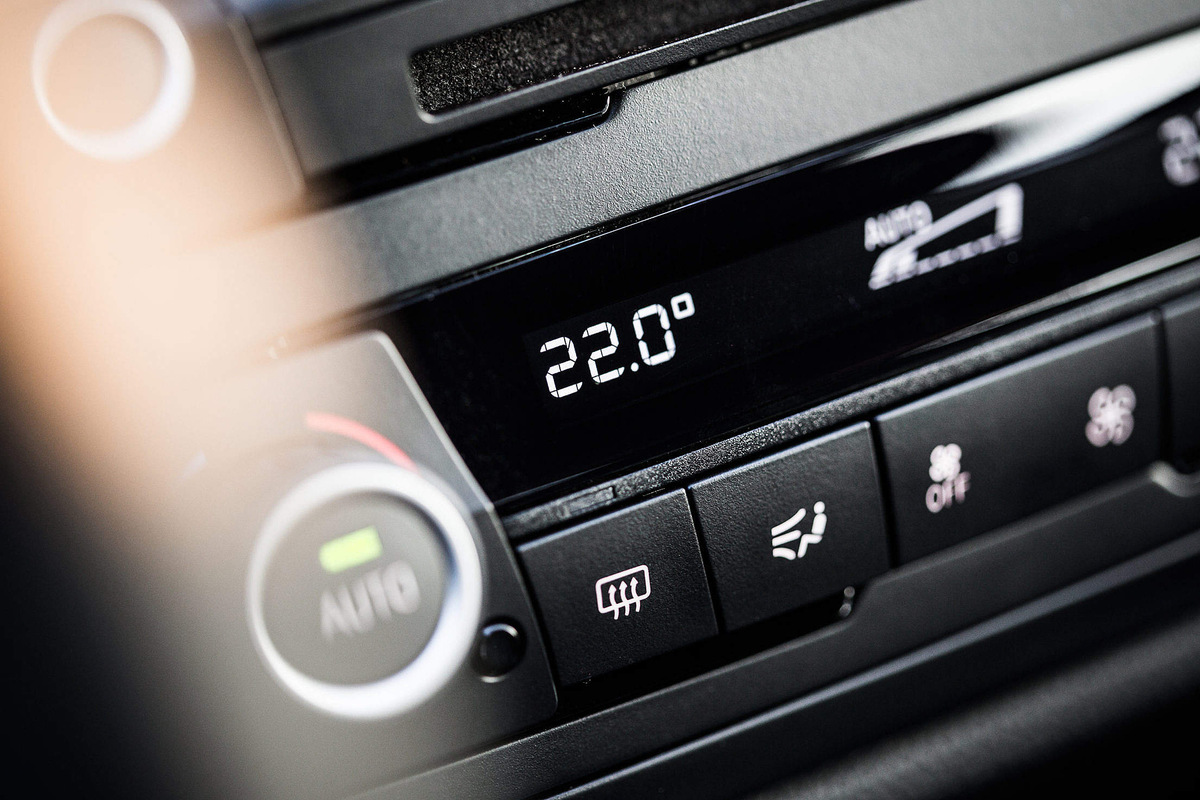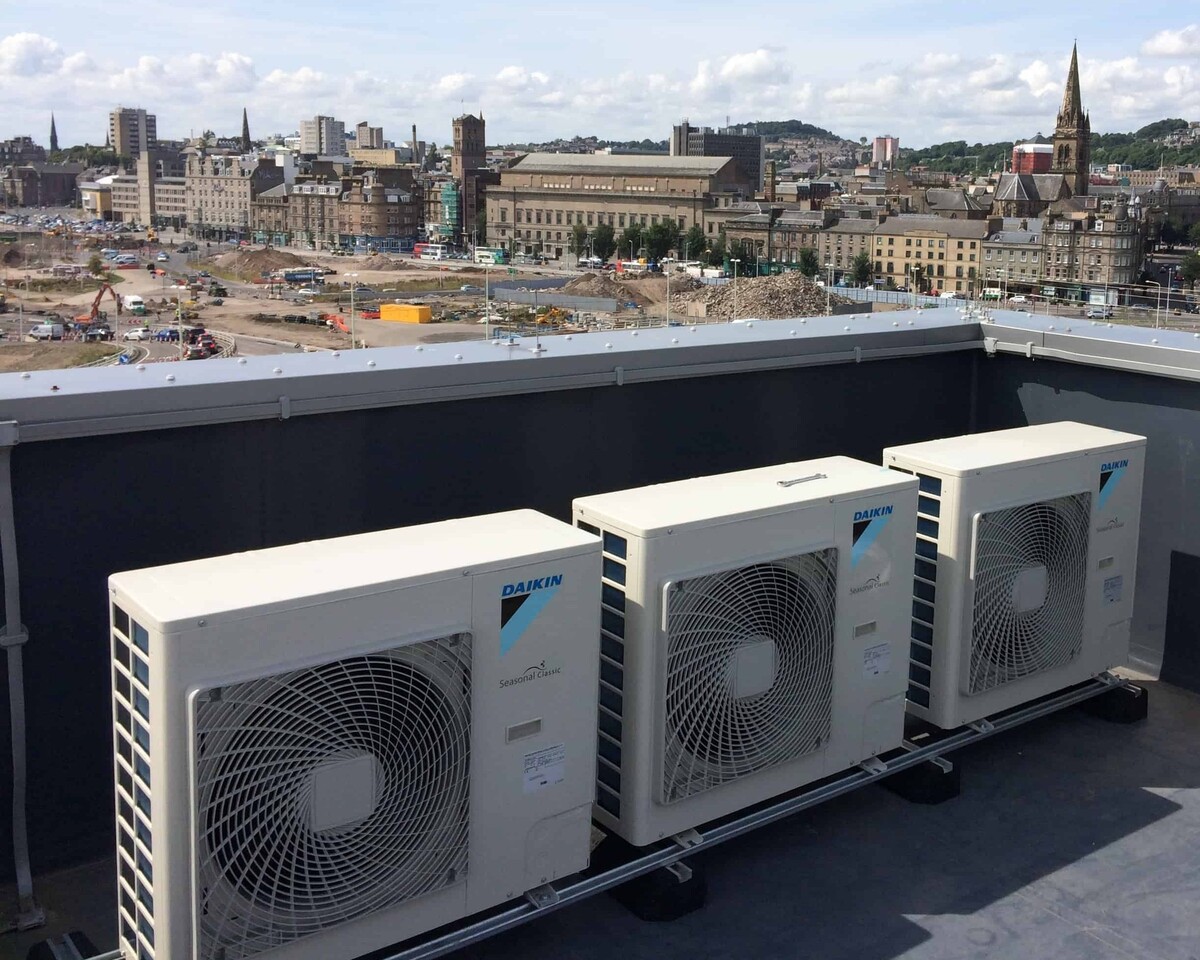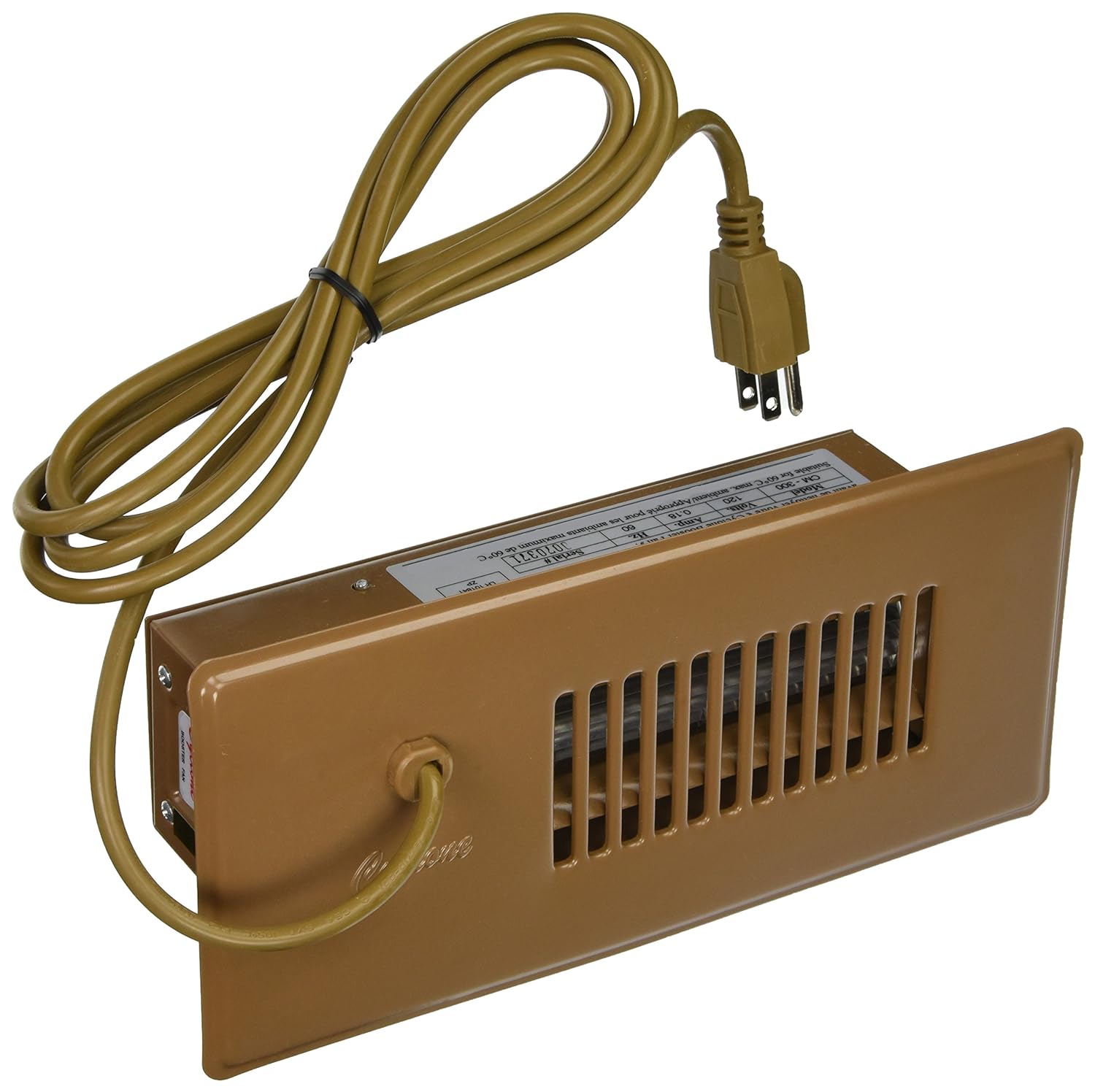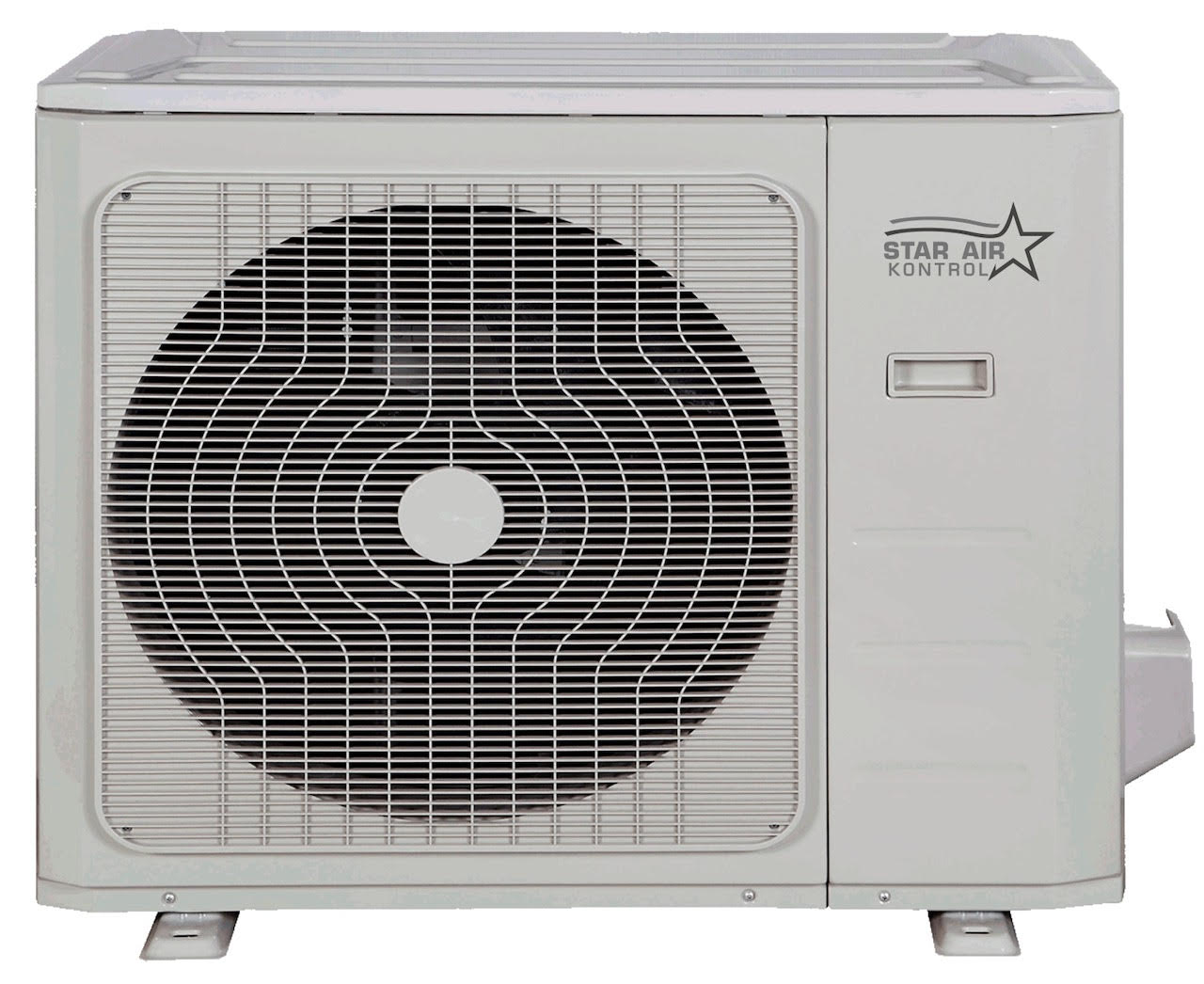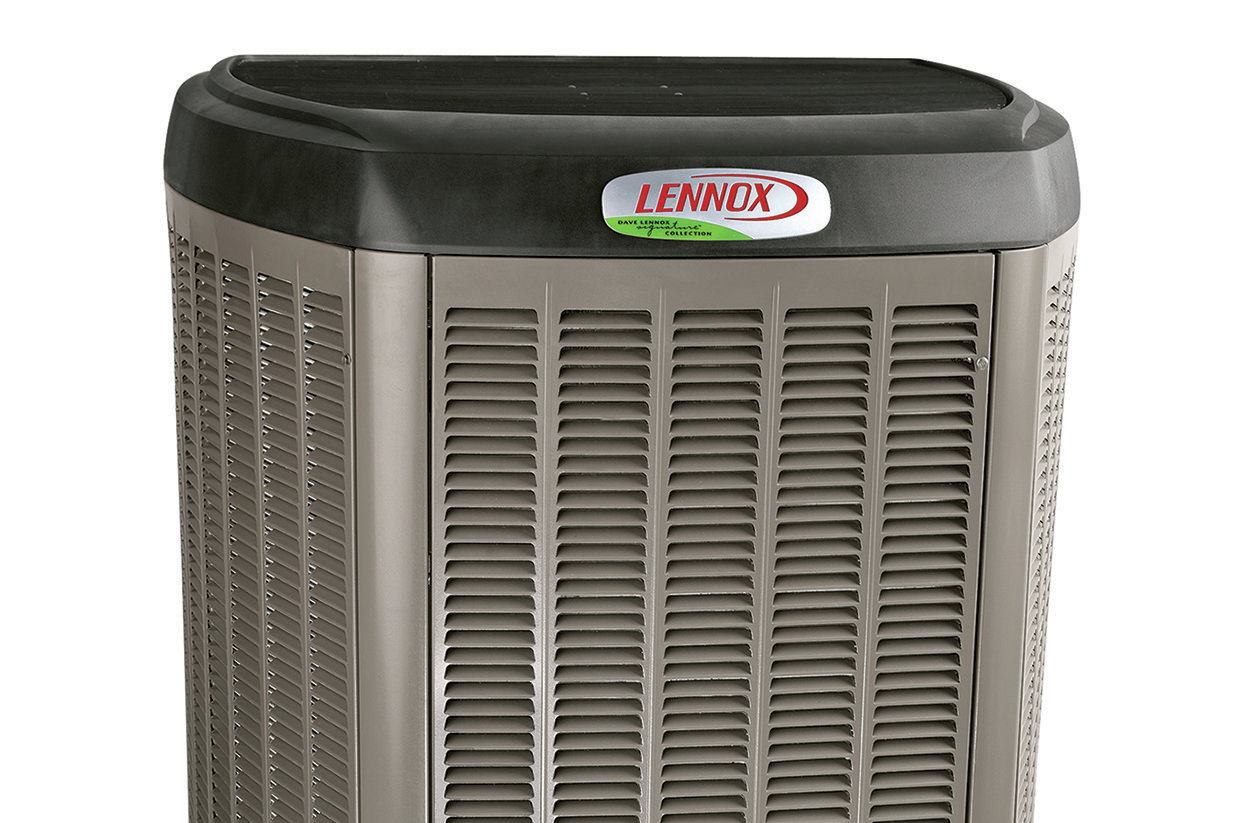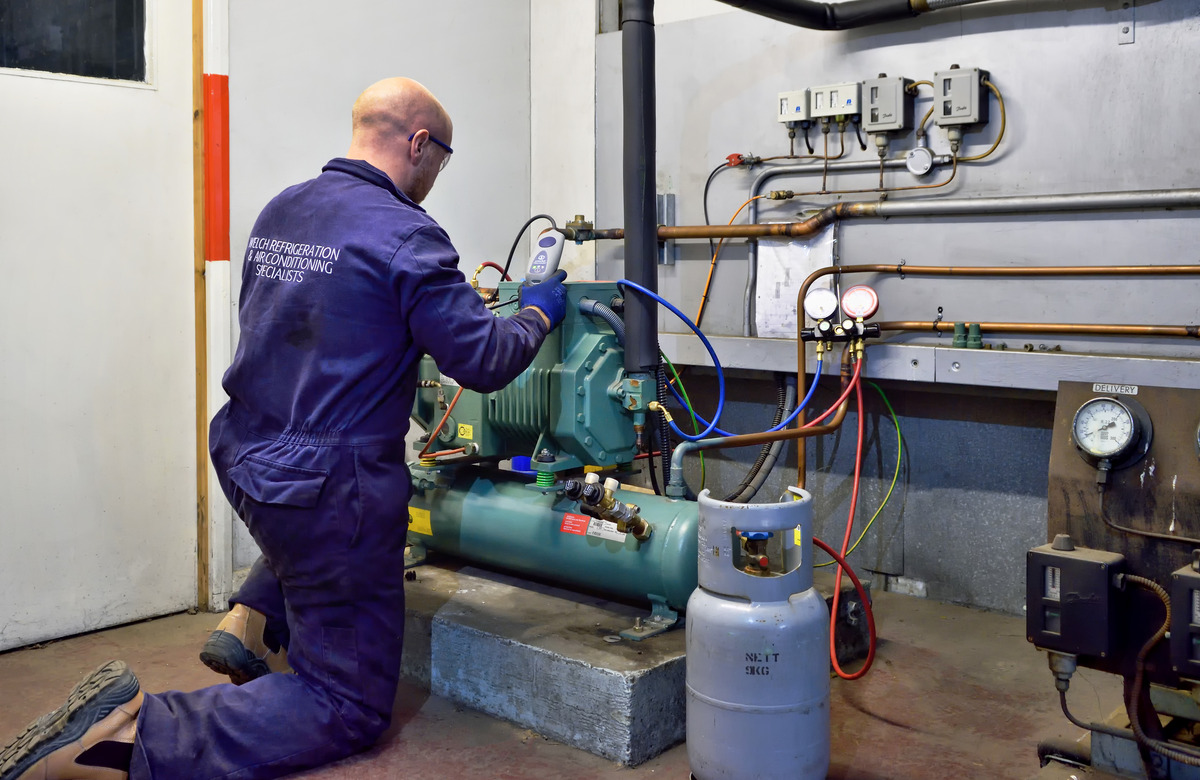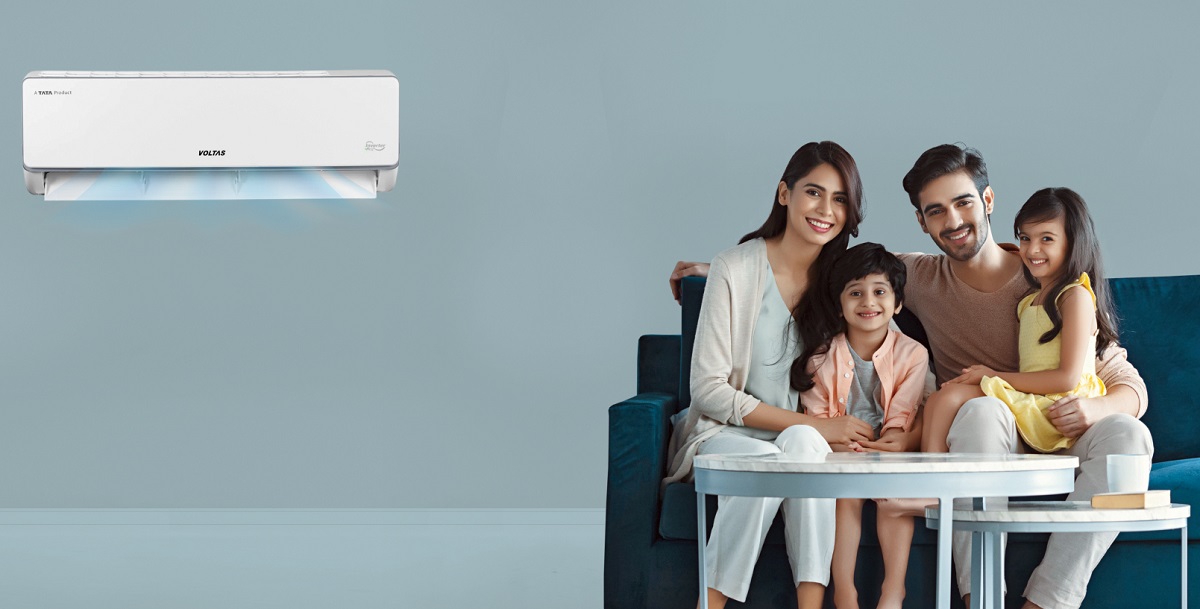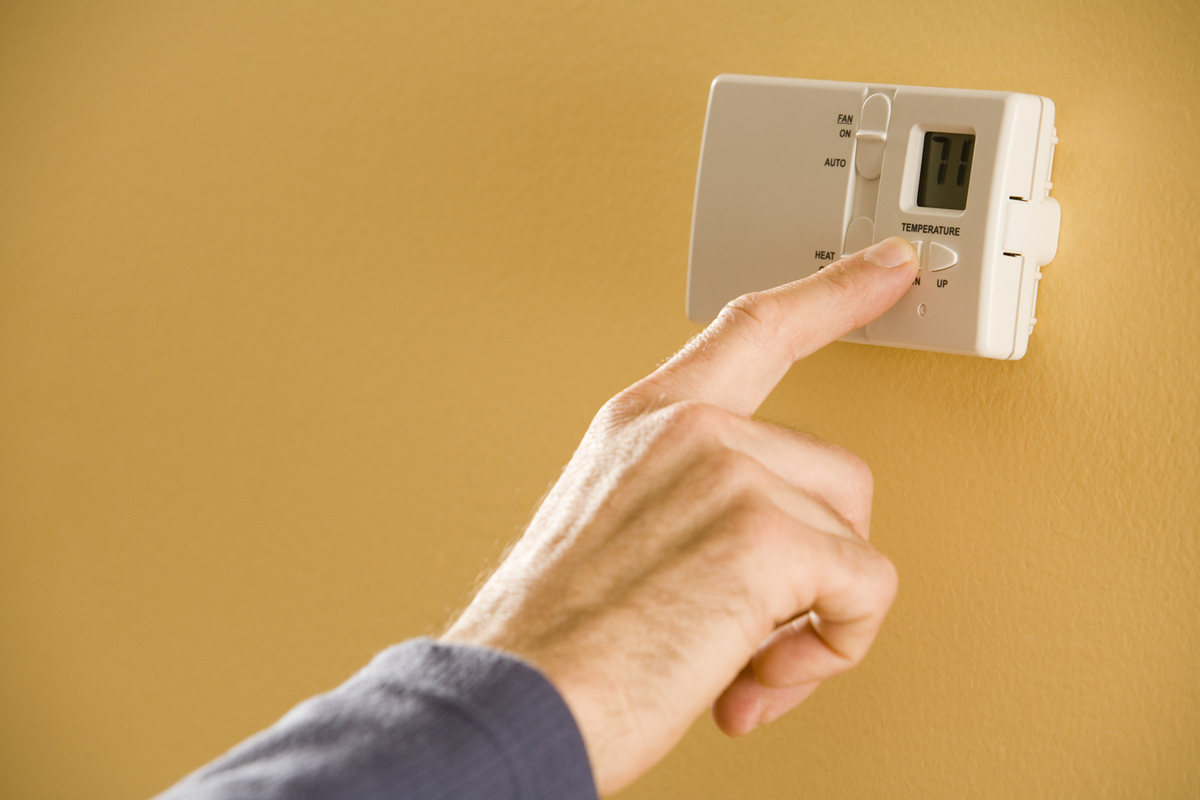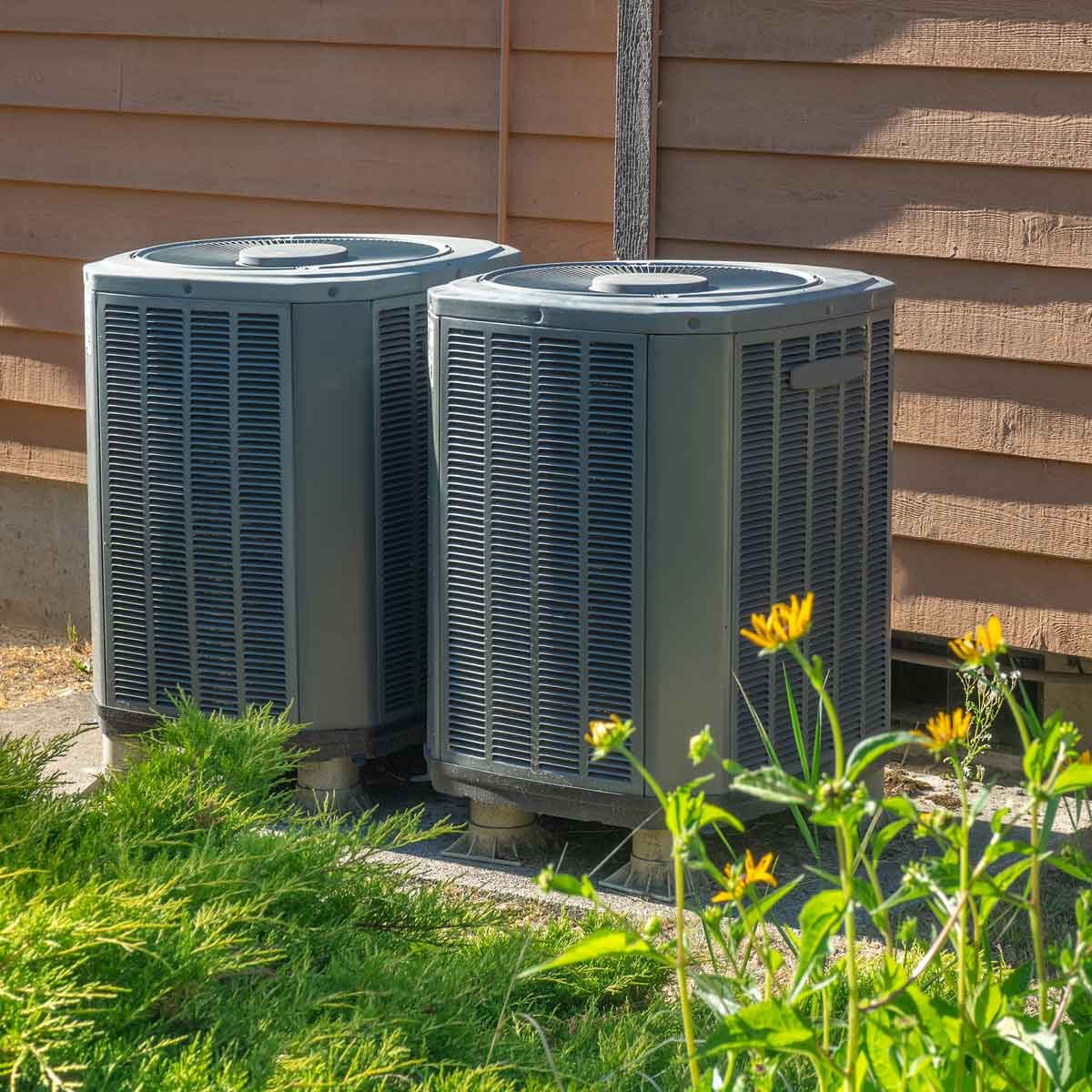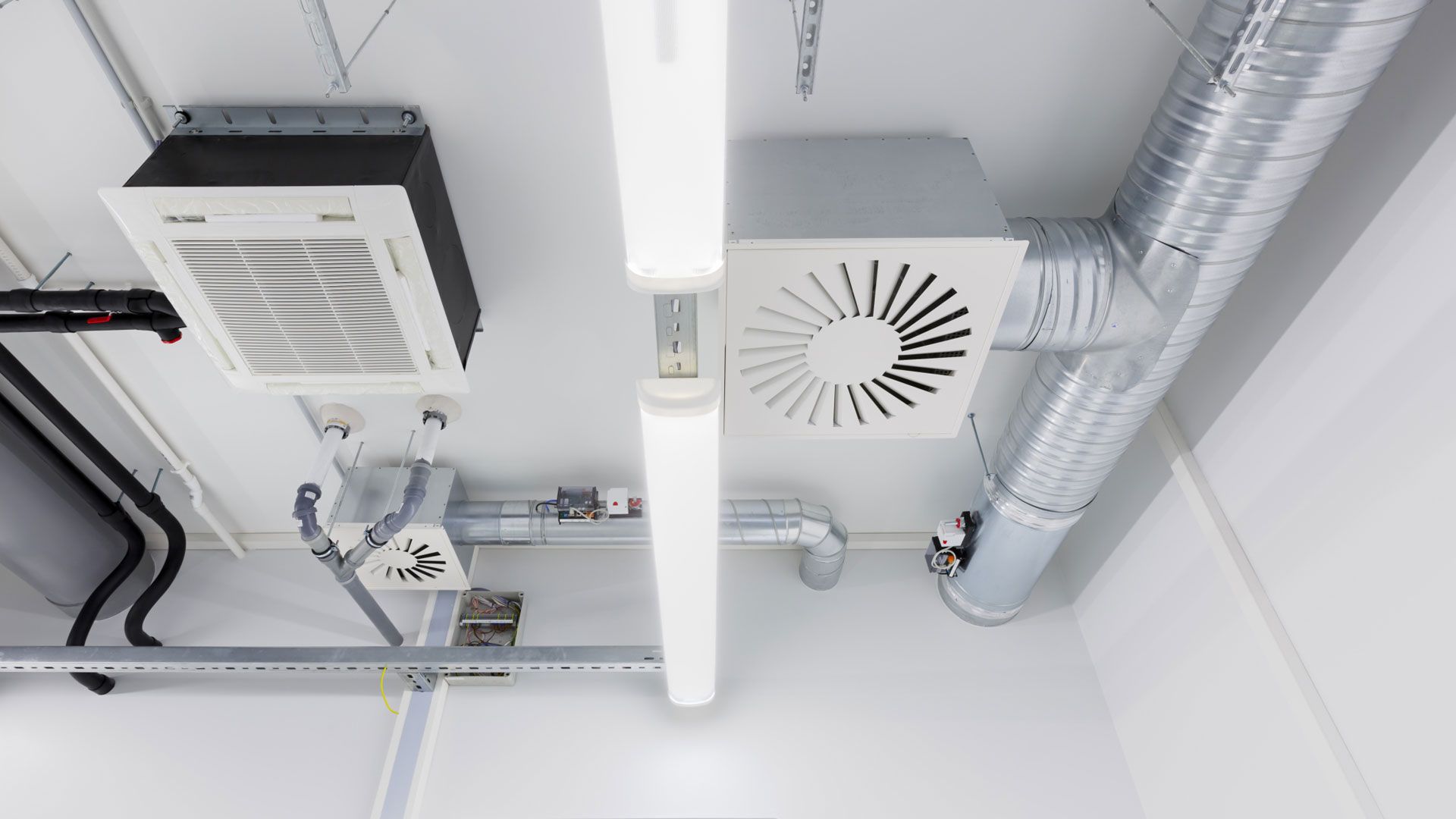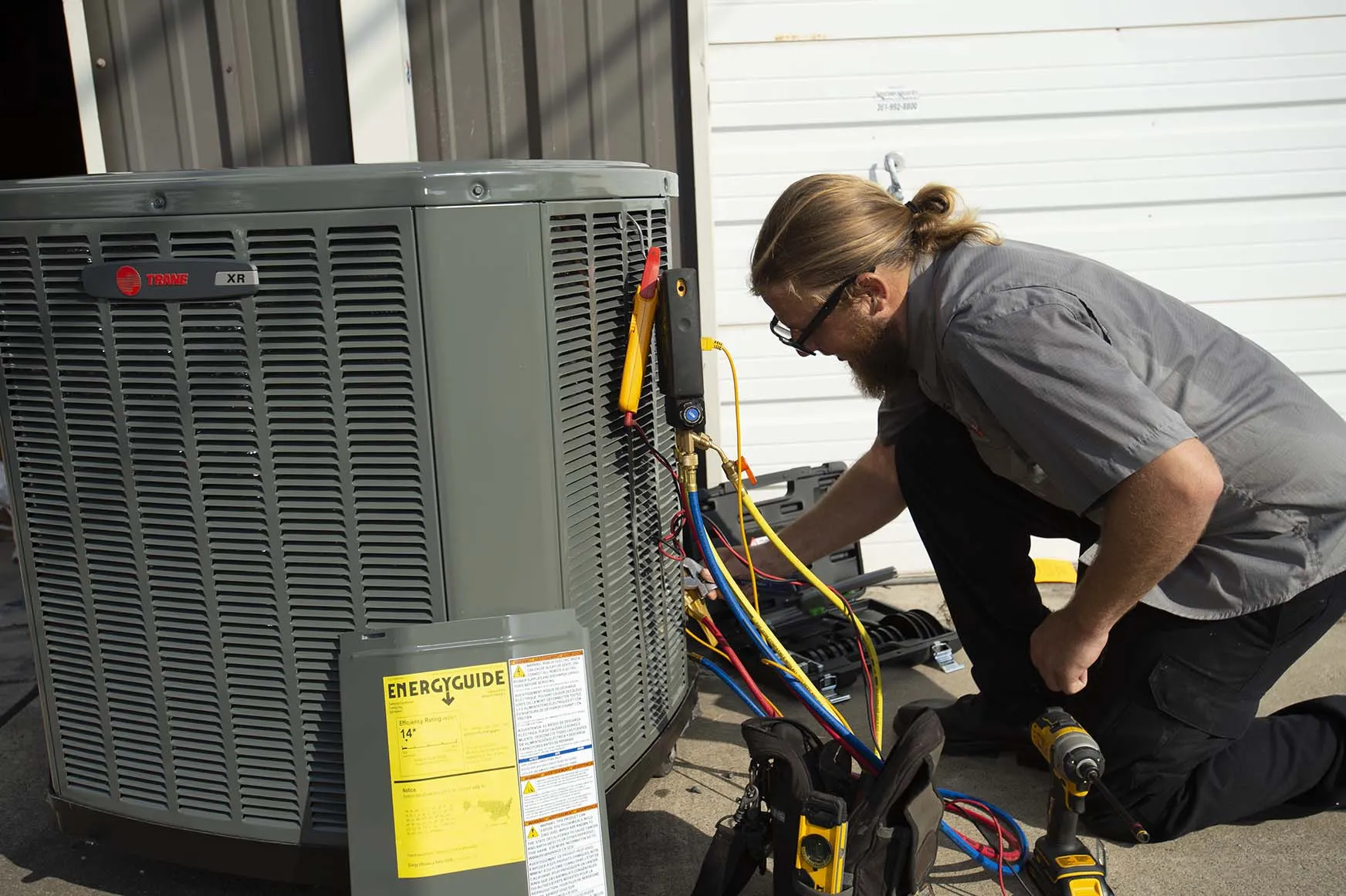Home>Home Maintenance>What Is An Inverter Air Conditioning Unit
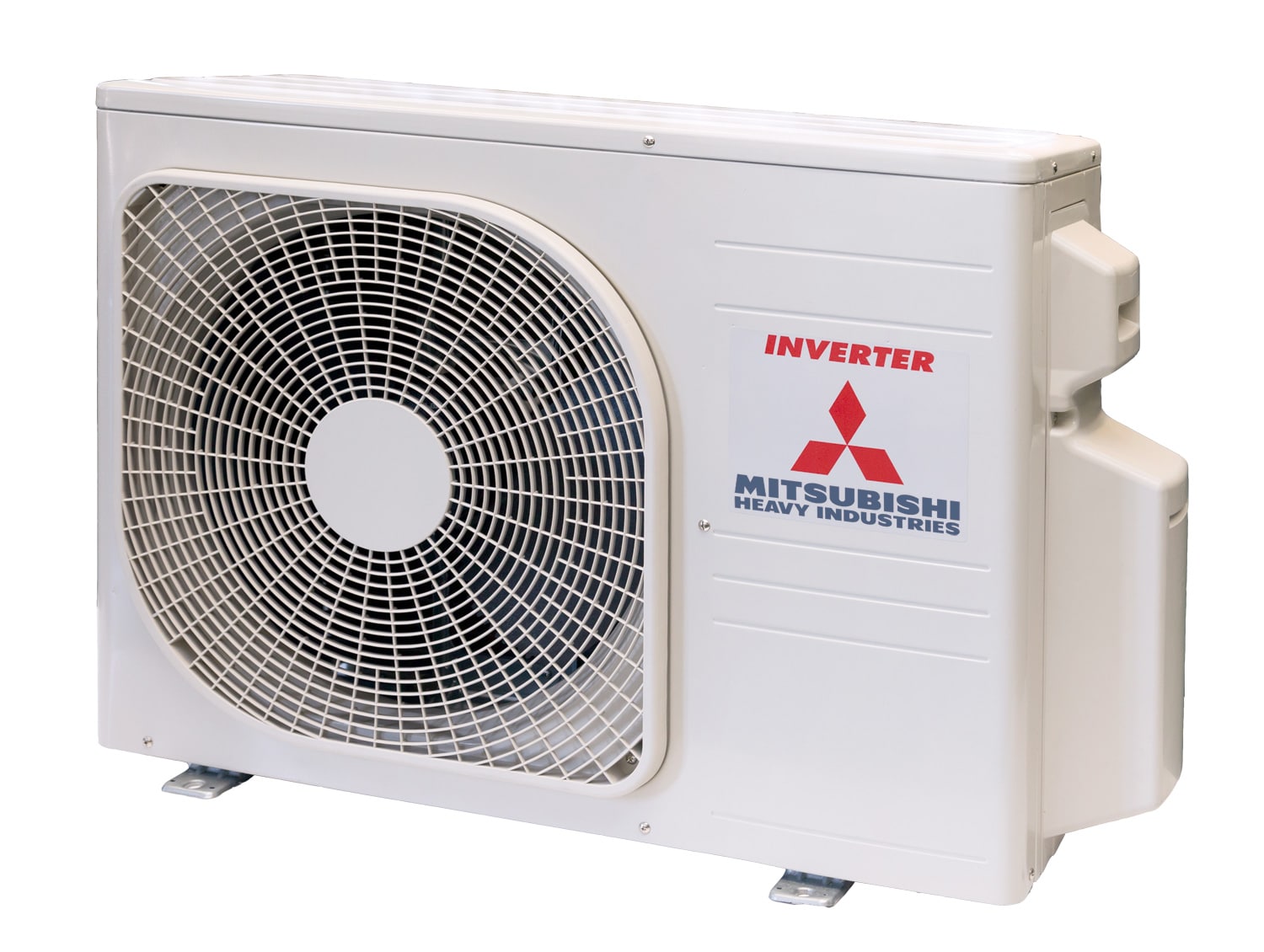

Home Maintenance
What Is An Inverter Air Conditioning Unit
Modified: August 27, 2024
Learn about inverter air conditioning units for your home maintenance needs. Find out how they can save energy and provide efficient cooling and heating solutions.
(Many of the links in this article redirect to a specific reviewed product. Your purchase of these products through affiliate links helps to generate commission for Storables.com, at no extra cost. Learn more)
Introduction
Welcome to the world of home maintenance! As homeowners, we understand the importance of keeping our houses in top-notch condition. From fixing leaky faucets and patching up walls to landscaping and painting, there is always something to keep us busy. However, one aspect of home maintenance that often goes unnoticed is our air conditioning system.
Air conditioning is a crucial part of our lives, especially during the scorching summer months. It provides the much-needed relief from the sweltering heat and humidity, creating a comfortable living environment. In recent years, there has been a significant advancement in air conditioning technology, particularly with the introduction of inverter air conditioning units.
Key Takeaways:
- Inverter air conditioning units adjust their compressor speed to match cooling needs, saving energy and reducing electricity bills. They provide a comfortable indoor environment with stable temperatures and quieter operation.
- While inverter units have a higher initial cost, their long-term benefits include energy efficiency, cost savings, and extended lifespan. Regular maintenance ensures optimal performance and maximizes their cooling efficiency.
Read more: What Is An Inverter AC
Definition of Inverter Air Conditioning
An inverter air conditioning unit is a type of air conditioner that uses a variable speed compressor motor. Unlike traditional air conditioners that have fixed compressors, inverter air conditioning units can adjust the compressor speed based on the cooling demands of the space. This technology allows the air conditioner to operate at different capacities and modulate its power output accordingly.
How Inverter Air Conditioning Works
The working principle of an inverter air conditioning unit involves two main components – the compressor and the inverter. The compressor is responsible for compressing the refrigerant gas, while the inverter controls the speed of the compressor.
When the air conditioning unit is turned on, the inverter starts by running the compressor at a high speed to cool the room quickly. Once the desired temperature is reached, the inverter slows down the compressor speed, maintaining a consistent and comfortable temperature. This continuous modulation of the power output ensures energy efficiency and reduces unnecessary power consumption.
Advantages of Inverter Air Conditioning
There are several advantages to using an inverter air conditioning unit:
- Energy Efficiency: Inverter air conditioners are more energy-efficient compared to traditional units. By adjusting the compressor speed according to the cooling needs, they consume less power, resulting in lower electricity bills.
- Comfort: With the ability to maintain a consistent temperature, inverter air conditioners provide a more comfortable indoor environment. They eliminate the need for frequent on-off cycles, reducing temperature fluctuations.
- No Voltage Fluctuations: Inverter air conditioning units are equipped with circuitry that stabilizes the voltage, protecting the compressor from sudden power fluctuations. This helps extend the lifespan of the unit.
- Quiet Operation: The variable speed compressor in inverter air conditioners operates at lower noise levels, creating a quieter and more peaceful environment.
So, if you’re looking to upgrade your air conditioning system, an inverter unit can offer numerous benefits.
Key Takeaways:
- Inverter air conditioning units adjust their compressor speed to match cooling needs, saving energy and reducing electricity bills. They provide a comfortable indoor environment with stable temperatures and quieter operation.
- While inverter units have a higher initial cost, their long-term benefits include energy efficiency, cost savings, and extended lifespan. Regular maintenance ensures optimal performance and maximizes their cooling efficiency.
Read more: What Is An Inverter AC
Definition of Inverter Air Conditioning
An inverter air conditioning unit is a type of air conditioner that uses a variable speed compressor motor. Unlike traditional air conditioners that have fixed compressors, inverter air conditioning units can adjust the compressor speed based on the cooling demands of the space. This technology allows the air conditioner to operate at different capacities and modulate its power output accordingly.
The primary difference between inverter air conditioning units and non-inverter units lies in their compressor operation. Non-inverter air conditioners have compressors that constantly run at full capacity, either switching on or off to regulate the temperature. On the other hand, inverter air conditioners continuously adjust the compressor speed to match the cooling needs of the room, ensuring a more efficient and consistent cooling experience.
Inverter air conditioning units utilize a microcontroller and a set of sensors to monitor the ambient temperature and adjust the compressor speed accordingly. When the room temperature is higher than the set temperature, the inverter increases the compressor speed to cool the room faster. Once the desired temperature is reached, the inverter slows down the compressor speed to maintain a steady temperature.
By operating at variable speeds, inverter air conditioning units can maintain precise temperature control with minimal energy wastage. The gradual modulation of the compressor speed also helps to minimize temperature fluctuations, ensuring a more comfortable indoor environment.
Inverter air conditioning units are available in different types, including split systems and ducted systems. Split systems consist of an indoor unit, which is installed inside the room, and an outdoor unit, which houses the compressor. Ducted systems, on the other hand, use a network of ducts to distribute the cooled air throughout the house.
Overall, the use of inverter technology in air conditioning units provides several advantages, including energy efficiency, improved comfort, quieter operation, and better temperature control. These units are a popular choice for homeowners looking to upgrade their air conditioning systems and enjoy the benefits of advanced cooling technology.
How Inverter Air Conditioning Works
The working principle of an inverter air conditioning unit involves two main components – the compressor and the inverter. The compressor is responsible for compressing the refrigerant gas, while the inverter controls the speed of the compressor.
When the air conditioning unit is turned on, the inverter starts by running the compressor at a high speed to cool the room quickly. Once the desired temperature is reached, the inverter slows down the compressor speed, maintaining a consistent and comfortable temperature. This continuous modulation of the power output ensures energy efficiency and reduces unnecessary power consumption.
The inverter constantly monitors the temperature in the room using built-in sensors. As the temperature rises, the inverter signals the compressor to increase its speed and pump more refrigerant into the system. This additional refrigerant absorbs the heat from the room and cools the air. Once the room reaches the desired temperature, the inverter adjusts the compressor speed to maintain a stable climate.
Unlike non-inverter air conditioning units that have a fixed speed compressor, inverter units can vary the compressor speed according to the cooling requirements. The variable speed operation allows the air conditioning unit to run at low speeds during periods of low demand, conserving energy. It also eliminates the need for the compressor to switch on and off frequently, reducing wear and tear and increasing the lifespan of the unit.
Inverter air conditioning units use advanced circuitry and digital controls to ensure smooth operation. The microcontroller within the inverter collects data from the sensors and adjusts the compressor speed accordingly. The inverter also controls other components of the air conditioning system, such as the fan speed and air direction, to optimize cooling efficiency.
Overall, the constant and precise modulation of the compressor speed in inverter air conditioning units offers numerous benefits. It provides better temperature control, reduces energy consumption, minimizes noise levels, and improves the overall comfort of the living space. Investing in an inverter air conditioning unit is a smart choice for homeowners looking for energy-efficient and reliable cooling solutions.
Advantages of Inverter Air Conditioning
There are several advantages to using an inverter air conditioning unit:
- Energy Efficiency: Inverter air conditioners are more energy-efficient compared to traditional units. By adjusting the compressor speed according to the cooling needs, they consume less power, resulting in lower electricity bills. The ability to operate at low speeds during periods of low demand ensures efficient energy usage.
- Comfort: With the ability to maintain a consistent temperature, inverter air conditioners provide a more comfortable indoor environment. The gradual modulation of the compressor speed minimizes temperature fluctuations, eliminating the need for frequent on-off cycles. This results in a stable and pleasant cooling experience.
- No Voltage Fluctuations: Inverter air conditioning units are equipped with circuitry that stabilizes the voltage, protecting the compressor from sudden power fluctuations. This feature not only ensures the longevity of the unit but also prevents any potential damage caused by irregular power supply.
- Quiet Operation: The variable speed compressor in inverter air conditioners operates at lower noise levels compared to non-inverter units. The ability to run at lower speeds reduces the noise generated during operation, creating a quieter and more peaceful living environment.
- Extended Lifespan: The continuous modulation of the compressor speed in inverter units reduces the strain on the compressor, resulting in a longer lifespan for the air conditioning system. The reduced wear and tear on the components contribute to the overall durability and longevity of the unit.
- Faster Cooling: Inverter air conditioning units are designed to cool the room quickly by running the compressor at a high speed initially. This allows the unit to reach the desired temperature rapidly, providing immediate relief from the heat.
These advantages make inverter air conditioning units a popular choice for homeowners who prioritize energy efficiency, comfort, and durability. While the initial cost of an inverter unit may be slightly higher than non-inverter units, the long-term benefits and cost savings make it a worthwhile investment in the long run.
Disadvantages of Inverter Air Conditioning
While inverter air conditioning units come with numerous benefits, it’s important to consider the potential disadvantages before making a purchase decision:
- Higher Initial Cost: Inverter air conditioning units tend to have a higher upfront cost compared to non-inverter units. The advanced technology and components used in these units contribute to the higher price. However, it’s worth noting that the long-term energy savings can offset the initial investment.
- Complexity: The technology behind inverter air conditioning units can be complex. This complexity can make troubleshooting and repairs more challenging, requiring specialized technicians with knowledge of inverter systems. Routine maintenance and servicing are highly recommended to ensure optimal performance.
- Sensitivity to Voltage Fluctuations: Although inverter units have built-in voltage stabilizers, they can still be sensitive to severe voltage fluctuations. Rapid and significant voltage changes can lead to malfunctions or damage to the unit. It’s important to ensure a stable power supply and consider installing additional voltage stabilizing equipment if necessary.
- Potential Reduced Efficiency at Extremely High or Low Temperatures: Inverter air conditioning units may experience reduced efficiency at extreme ambient temperatures. In very hot or cold climates, the unit may struggle to achieve the desired temperature efficiently. It’s essential to choose a unit with appropriate capacity for your specific climate conditions.
- Compatibility with Existing HVAC Systems: In some cases, integrating an inverter air conditioning unit with an existing HVAC (Heating, Ventilation, and Air Conditioning) system can be complex. Compatibility issues may arise, requiring additional modifications or system upgrades to ensure seamless operation.
Despite these disadvantages, inverter air conditioning units are still widely regarded as a superior cooling option due to their energy efficiency, comfort, and long-term cost savings. Before purchasing an inverter unit, it’s important to consider your specific needs and consult with a professional to determine the most suitable option for your home.
Energy Efficiency and Cost Savings
One of the key advantages of inverter air conditioning units is their energy efficiency, which translates to significant cost savings in the long run. These units are designed to operate at variable speeds, adjusting the compressor’s speed according to the cooling demands of the room. This dynamic operation allows inverter units to optimize energy consumption and reduce unnecessary power usage.
Compared to non-inverter air conditioning units that constantly turn on and off to regulate the temperature, inverter units offer a more efficient and continuous cooling process. By modulating the compressor speed, they avoid the sudden spikes in energy consumption associated with traditional units. Instead, inverter units work at lower speeds during periods of low demand, leading to reduced power consumption and lower electricity bills.
The energy efficiency of inverter air conditioning units is further enhanced by their ability to maintain a consistent temperature. Instead of the temperature fluctuations often experienced with non-inverter units, inverter units provide a more stable climate. This eliminates the need for frequent on-off cycles and reduces energy wastage.
The cost savings associated with inverter air conditioning units can be substantial over time. While the initial purchase cost may be higher compared to non-inverter units, the energy savings can offset this upfront investment. The precise temperature control, reduced power consumption, and lower electricity bills make inverter units a more financially sustainable choice in the long term.
Additionally, inverter air conditioning units may qualify for energy efficiency rebates or incentives provided by utility companies or government programs. These incentives can further reduce the overall cost of purchasing and operating an inverter unit, making it an even more attractive option.
It’s important to note that the actual energy efficiency and cost savings will vary depending on several factors, including the size of the space being cooled, ambient temperatures, insulation levels, and usage patterns. Consulting with a professional HVAC technician can help determine the most suitable inverter unit for your specific needs and provide accurate estimations of potential energy savings.
By investing in an inverter air conditioning unit, homeowners can enjoy not only the benefits of efficient and comfortable cooling but also the long-term cost savings that come with reduced energy consumption. It’s a win-win situation for both your comfort and your wallet.
An inverter air conditioning unit uses a variable speed compressor to adjust the cooling or heating capacity, which can result in energy savings and more consistent temperatures in your home.
Read more: What Is Air Conditioning
Maintenance and Longevity
Proper maintenance is essential for ensuring the longevity and optimal performance of any air conditioning system, including inverter units. By following a regular maintenance routine, homeowners can maximize the lifespan of their inverter air conditioning unit and minimize the risk of breakdowns and costly repairs.
Here are some maintenance tips to keep in mind:
- Clean or Replace Air Filters: Air filters play a crucial role in maintaining the air quality and efficient operation of the unit. Dirty or clogged filters restrict airflow, reducing the cooling efficiency and putting strain on the system. Clean or replace the filters regularly according to the manufacturer’s recommendations.
- Keep the Outdoor Unit Clean: The outdoor unit of the inverter air conditioning system is susceptible to dust, debris, and vegetation buildup. Regularly clean the unit and ensure there is sufficient space around it for proper airflow. Trim any nearby plants or shrubs that may obstruct the unit’s efficient operation.
- Inspect and Clean the Condenser Coils: Over time, the condenser coils may accumulate dirt and debris, affecting the unit’s heat transfer capabilities. Inspect the coils and clean them if necessary using a gentle spray of water or a coil cleaning solution, following the manufacturer’s instructions.
- Check the Drainage System: Inverter units have a drainage system to remove condensation from the indoor unit. Regularly check the drainage pipes and ensure they are not clogged or blocked. A blocked drainage system can cause water leakage and potential damage to the unit.
- Schedule Professional Maintenance: It is highly recommended to have a professional HVAC technician perform annual or bi-annual maintenance on your inverter air conditioning unit. They can inspect and clean the internal components, check refrigerant levels, ensure electrical connections are secure, and identify any potential issues before they escalate.
By following these maintenance guidelines, homeowners can extend the lifespan of their inverter air conditioning unit. Inverter units are known for their durability, and with proper care, they can last for many years. However, it’s important to note that the lifespan of any air conditioning unit can vary depending on factors such as usage patterns, climate conditions, and maintenance practices.
Regular maintenance not only helps in preserving the efficiency and longevity of the unit but also ensures that the unit runs safely and effectively. Ignoring maintenance can lead to reduced performance, increased energy consumption, higher repair costs, and even potential safety hazards.
Remember to consult the manufacturer’s guidelines and warranty information for specific maintenance instructions and recommended service intervals. A well-maintained inverter air conditioning unit will provide reliable and efficient cooling for your home, keeping you comfortable for years to come.
Comparison with Non-Inverter Air Conditioning Units
When considering air conditioning options, it’s essential to understand the differences between inverter and non-inverter units. Non-inverter air conditioning units, also known as conventional air conditioning units, have a fixed-speed compressor that runs at full capacity whenever the unit is turned on. Here’s a comparison between inverter and non-inverter air conditioning units:
Energy Efficiency:
Inverter: Inverter air conditioning units are highly energy-efficient compared to non-inverter units. By modulating the compressor speed to match the cooling demands, inverter units consume less power, resulting in reduced energy consumption and lower electricity bills.
Non-Inverter: Non-inverter units operate at a fixed speed, constantly turning on and off to maintain the desired temperature. This frequent cycling consumes more energy compared to inverter units, leading to higher energy consumption and increased utility costs.
Comfort and Temperature Control:
Inverter: Inverter air conditioning units offer superior comfort and precise temperature control. The variable speed operation allows inverter units to maintain a consistent temperature by adjusting the compressor speed. This reduces temperature fluctuations, providing a more comfortable indoor environment.
Non-Inverter: Non-inverter units have a fixed-speed compressor, leading to temperature swings as the unit switches on and off. These fluctuations can create an uncomfortable environment, especially during hot or humid weather.
Noise Level:
Inverter: Inverter air conditioning units operate at lower noise levels compared to non-inverter units. The ability to run at lower speeds reduces the noise generated during operation, making inverter units quieter and more pleasant to live with.
Non-Inverter: Non-inverter units tend to be noisier as they operate at a fixed speed, producing more noise during the on-off cycling process.
Initial Cost:
Inverter: Inverter air conditioning units generally have a higher upfront cost compared to non-inverter units. The advanced technology and components used in inverter units contribute to the higher price. However, the long-term energy savings can offset this initial investment.
Non-Inverter: Non-inverter units are typically less expensive to purchase initially due to their simpler design and lower technological requirements.
Maintenance and Lifespan:
Inverter: Inverter air conditioning units require regular maintenance to ensure optimal performance and longevity. However, their variable speed operation reduces wear and tear on the compressor, increasing the lifespan of the unit when properly maintained.
Non-Inverter: Non-inverter units also require regular maintenance, but their fixed-speed operation may result in more frequent wear on the compressor, potentially reducing the lifespan of the unit.
Ultimately, the choice between inverter and non-inverter air conditioning units depends on your specific needs and priorities. Inverter units offer energy efficiency, greater comfort, and precise temperature control, making them an ideal choice for those seeking long-term cost savings and optimal indoor climate control. Non-inverter units may be suitable for those with budget constraints or in situations where constant temperature control is not a priority.
Conclusion
Inverter air conditioning units have revolutionized the world of home cooling, offering numerous advantages compared to traditional non-inverter units. With their energy efficiency, precise temperature control, and quiet operation, inverter units provide a superior cooling experience while also offering long-term cost savings.
The variable speed compressor in inverter units allows them to adjust the power output according to the cooling demands of the room, resulting in reduced energy consumption. This not only helps lower utility bills but also contributes to a more sustainable and environmentally-friendly lifestyle.
Inverter air conditioning units offer improved comfort by maintaining a consistent temperature and minimizing temperature fluctuations. The ability to modulate the compressor speed ensures a stable and pleasant indoor environment, providing relief from the sweltering heat and humidity during the summer months.
While inverter units may have a higher initial cost compared to non-inverter units, the long-term benefits and energy savings justify the investment. By reducing power consumption, inverter units contribute to a greener future and help homeowners reduce their carbon footprint.
Maintenance plays a vital role in maximizing the lifespan and performance of inverter air conditioning units. Regular cleaning, filter replacement, and professional maintenance ensure optimal efficiency and prevent potential issues from arising.
When comparing inverter units to non-inverter units, the advantages of inverter technology become clear. Inverter units offer superior energy efficiency, enhanced comfort, quieter operation, and precise temperature control, making them the preferred choice for homeowners looking to upgrade their cooling systems.
In conclusion, if you’re seeking an air conditioning unit that provides energy efficiency, cost savings, and a comfortable living environment, consider investing in an inverter air conditioning unit. Enjoy the benefits of advanced technology, optimal cooling performance, and the peace of mind that comes with a long-lasting and efficient cooling solution for your home.
Frequently Asked Questions about What Is An Inverter Air Conditioning Unit
Was this page helpful?
At Storables.com, we guarantee accurate and reliable information. Our content, validated by Expert Board Contributors, is crafted following stringent Editorial Policies. We're committed to providing you with well-researched, expert-backed insights for all your informational needs.
